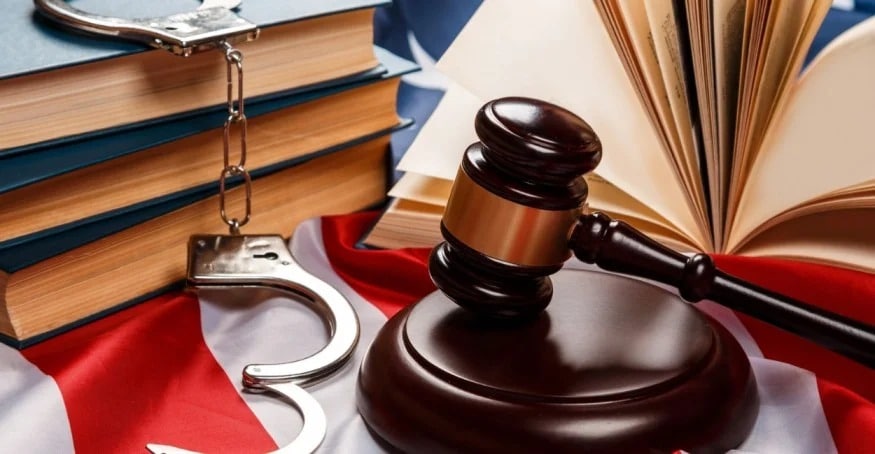Every year, thousands of injuries are caused by defective or unsafe products, ranging from faulty…
Beyond White Collar Crime: Why SEC Cases Should Matter to Everyday Defendants – Guest Post

When most people hear about SEC (Securities and Exchange Commission) enforcement cases, they think of high-profile Wall Street scandals, billion-dollar frauds, and powerful executives in expensive suits. But a recent decision from the Ninth Circuit reveals something that should alarm far more than just corporate insiders. The way the SEC handles settlements can affect anyone caught up in its investigations: small business owners, accountants, teachers who run investment clubs, and even entrepreneurs who make an honest mistake with securities rules.
This ruling highlights that SEC settlements are not just financial transactions. They carry speech restrictions and reputational consequences that can last for years. Understanding this shift is crucial for anyone who could ever face a regulatory investigation which, given the complexity of securities laws, is a far broader group than most people realize.
The Ninth Circuit’s Ruling and Its Impact
At the heart of the decision is the SEC’s “no-admit/no-deny” policy. This rule allows defendants to settle cases without formally admitting guilt but also bars them from publicly denying the SEC’s allegations after the settlement is final. On paper, this is framed as a voluntary agreement. In practice, the “choice” to settle is rarely free from pressure.
Litigating against the SEC can take years, cost millions, and devastate a defendant’s reputation simply by virtue of being named in a complaint. Many defendants feel cornered: settle and stay silent, or risk financial ruin in a trial that could end in worse penalties. The Ninth Circuit’s decision makes clear that these speech waivers remain enforceable even when settlement is effectively the only viable path.
For many, this means that resolving the case does not bring true closure. The defendant must live with the stigma of unresolved allegations but has forfeited the right to publicly defend their name.
Why This Should Concern Everyone
The people caught in SEC cases are not always hedge-fund managers or CEOs. They include small-town advisers, accountants, and mid-level employees who accidentally violate complex reporting rules. To them, litigation is not just expensive, it is existential. Fighting can mean bankruptcy. As a result, settlement becomes the default path. The Ninth Circuit’s ruling on SEC settlements highlights that even when defendants choose to settle, the consequences can be long-lasting, affecting future employment opportunities and professional reputations.
But under “no-admit/no-deny,” settlement does not end the matter. It silences defendants forever. They cannot say, “I didn’t do what the SEC claimed,” even if they believe the allegations are wrong.
The Reputational Toll
For professionals, silence can look like guilt. Imagine a small accounting firm owner accused of a technical reporting error. Even if the case was weak, the firm’s clients may only see that it was charged, fined, and then fell silent. Licenses can be harder to renew, business can dry up, and trust within the community can erode. In many cases, the reputational harm outweighs the fine itself — a quiet, ongoing penalty that can last a lifetime.
Consequences for Future Legal Battles
Settlements can have ripple effects. They can be used as leverage in shareholder lawsuits, professional discipline hearings, or state regulatory inquiries. Because defendants are barred from denying the allegations, they enter these proceedings at a disadvantage. They cannot explain or contextualize what happened even when doing so might protect them from additional penalties.
The Risk of Overreach
The Ninth Circuit left open the possibility that “as-applied” challenges could be brought if the policy is enforced in ways that clearly violate constitutional rights. But realistically, few defendants have the resources to wage that kind of battle. The SEC, with its budget and enforcement power, holds the upper hand. This imbalance means that the public narrative is shaped almost entirely by the regulator, while defendants must remain silent.
This dynamic is particularly concerning in an era when public perception often matters as much as legal outcomes. Headlines are written, press releases are issued, and social media reacts yet the person accused cannot speak. Over time, this creates a presumption of guilt, even when there was no admission.
Practical Lessons for Defendants
The Ninth Circuit’s decision is not just a legal footnote, it is a warning. Anyone facing SEC action must approach settlement with extreme caution. A few key lessons stand out:
- Read Agreements Carefully: Understand exactly what rights you are giving up, especially speech rights, and whether they apply permanently.
- Consider Long-Term Impact: Settlements can have consequences years after fines are paid, affecting licensing, employment, and reputation.
- Preserve Your Record: If you believe the waiver of rights was not fully voluntary, document that objection in the settlement record to keep the door open for future challenges.
Policy Implications
The ruling highlights a deeper policy question: should regulators be able to speak freely about allegations while defendants remain gagged? When the government can broadcast its version of events, but those accused cannot respond, public confidence in the fairness of the system erodes. Over time, this risks turning settlements from a tool of resolution into a tool of narrative control.
Conclusion
The Ninth Circuit’s decision shows that SEC settlements cost more than money. They can permanently limit speech, damage reputations, and weaken future defenses. For everyday defendants, this is a wake-up call: an SEC case is not just about fines or compliance, it is about protecting your ability to tell your own story.
Silence should not be mistaken for guilt. Yet under the SEC’s settlement model, that is often exactly what happens. Anyone facing an SEC investigation must think beyond the immediate crisis, seek strong legal advice, and plan a defense strategy that safeguards their reputation and future.
